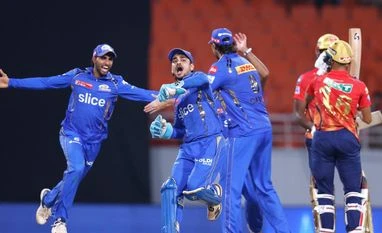India is currently gripped by the excitement of the ongoing IPL season. Adding to the fervour, the registration for the 16th season of the popular game show Kaun Banega Crorepati (KBC), hosted by Amitabh Bachchan, kicked off last Friday.
The potential to earn substantial amounts of money has consistently attracted large audiences to game shows and fantasy sports in India. This trend was set in motion by KBC, where participants could win significant cash prizes, capturing the public's imagination from the start. Following KBC's success, other television channels introduced similar high-stake shows like Big Boss, MTV Roadies, and Dance India Dance. Moreover, the recent surge in internet connectivity has propelled the popularity of online gaming platforms such as Rummy, Poker, and Dream 11, which also offer lucrative winnings.
Tax obligations on winnings
However, participants of shows like KBC or players of Dream11 should note that their winnings are taxable. According to Manikandan S, a tax expert from ClearTax, "The Income Tax Act classifies game show and online game winnings as income, taxable at a rate of 30% under Section 115BB. This includes the actual winnings plus any bonuses or incentives. The tax is deducted at source under Section 194BA before the net winnings are paid out."
Tax rules on game show income
Here are the key points about tax implications on prize money in India:
More From This Section
1. Prize money exceeding Rs 10,000 is subject to TDS at 31.2% under section 194B of the Income Tax Act.
2. For winnings from horse races, TDS is applicable if the prize exceeds Rs 10,000.
3. No deductions for expenses or allowances can be claimed against such income.
4. Income tax deductions under sections like 80C or 80D are not allowed against winnings.
5. The basic exemption limit and slab rates do not apply; winnings are taxed at a flat rate of 31.20%.
6. Example: If Sonam wins Rs 3 lakh from a game show and has another Rs 5 lakh as interest income, his tax would be calculated as 31.2% on the Rs 3 lakh, and the Rs 5 lakh would be taxed according to standard slab rates after any applicable deductions.
Taxation of prize money received in kind in India:
1. If a prize is given in kind (e.g., a car), the prize distributor must ensure that the tax on its market value is paid before releasing the prize.
2. The tax is calculated at 31.2% of the market value of the prize.
3. The prize distributor can choose to recover the tax from the winner or pay it themselves.
4. Example: If Neha wins an Alto car valued at Rs 4 lakh, a tax of Rs 1,24,800 (31.2%) must be paid before she can receive the car.
5. For prizes consisting of both cash and kind, tax is calculated on the total value (cash plus market value of the in-kind prize). The tax is deducted from the cash portion when given to the winner.
6. If the cash portion is insufficient to cover the tax, the deficit must be paid either by the winner or the distributor.
How should winnings from games like KBC and Dream11 be reported on a tax return?
When it comes to reporting these winnings, "Income from other sources" is the designated category in the income tax returns.
"Proper documentation and records, including the TDS certificate, are crucial," adds Manikandan. He also notes that winnings need to be declared in ITR-1 for incomes up to Rs 50 lakh, and in ITR-2 for higher earnings.
The rise of fantasy sports
During IPL 2023, Fantasy Sports (FS) saw its user base grow significantly, with Redseer Consultants reporting 61 million active users, an 11% increase from the previous year. The entry of new users was particularly notable, increasing by 35%. This growth translated into a substantial economic impact, with a 24% increase in gaming revenue, amounting to Rs 2,800 crore, Business Standard reported.
Legal standing of fantasy sports in India
"The legality of FS as a game of skill rather than chance has been firmly established by multiple rulings from the High Courts of Punjab and Haryana, Bombay, Rajasthan, and the Supreme Court of India. These judgments underscore that success in FS depends on one's skill in selecting teams based on players' real-time performances in live matches," said Joy Bhattacharjya.
"While the Public Gambling Act of 1867 bans most forms of gambling, including sports betting, FS is distinguished by its reliance on skill. This distinction has allowed it to thrive legally within the Indian framework, supported by studies from prominent institutions like IIM Bangalore, MIT, and Columbia, which confirm the skill-based nature of Fantasy Sports," added Bhattacharjya.
)